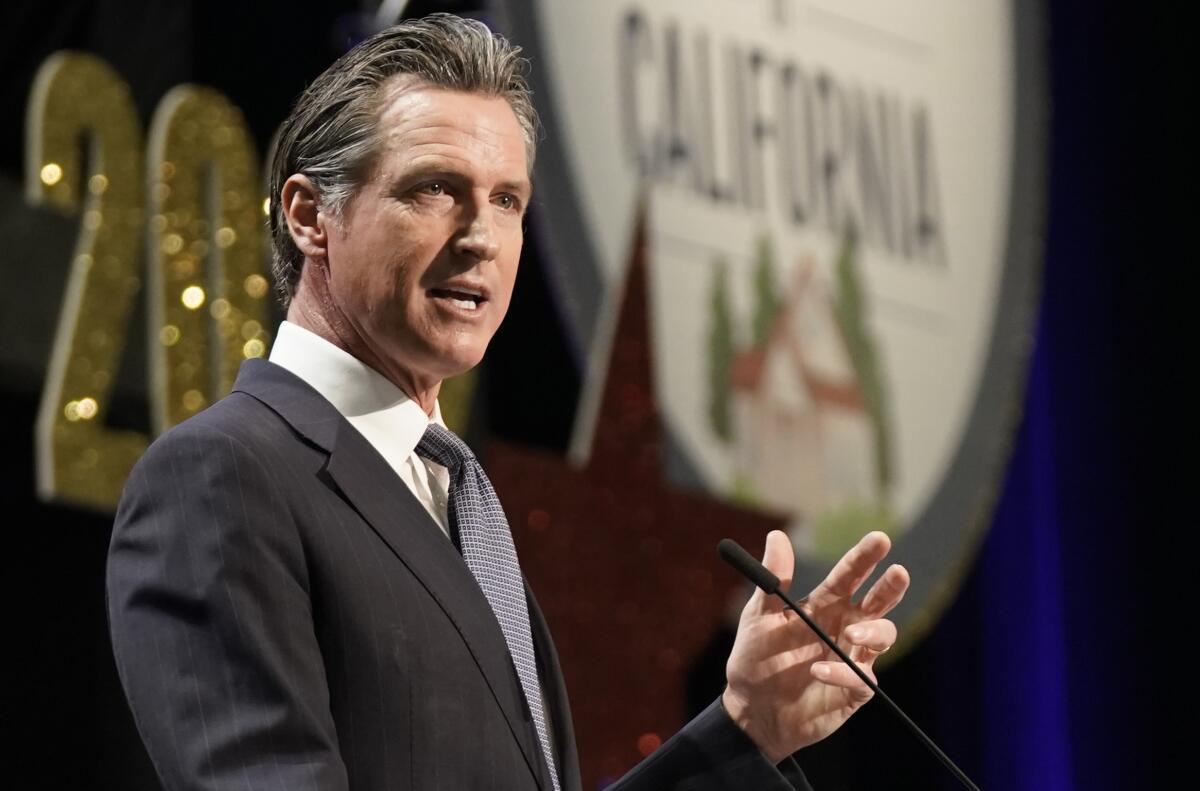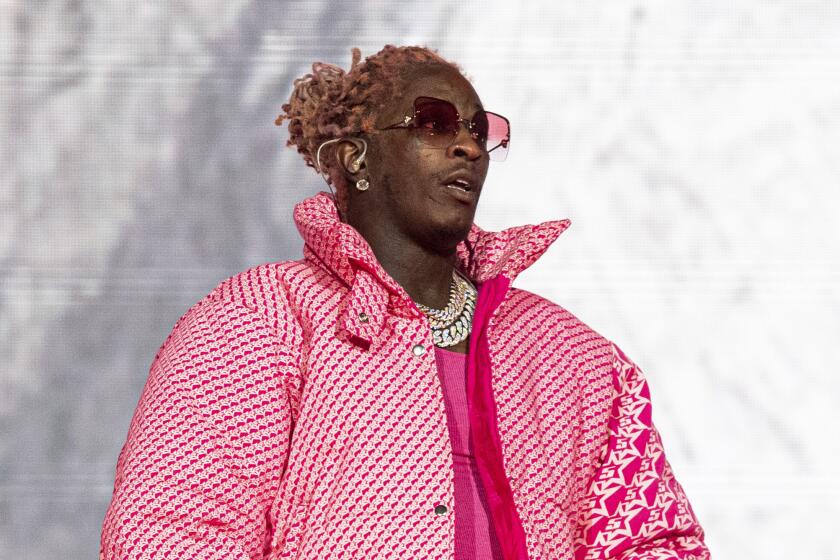Gov. Newsom signs bill restricting use of rap lyrics in criminal trials

Musicians in California can breathe easier about their lyrics putting them at risk in court.
On Friday, California Gov. Gavin Newsom signed the Decriminalizing Artistic Expression Act, which limits the ways an artist’s lyrics can be used against them as evidence in criminal cases. While it couldn’t ban the use of lyrics outright, it establishes a presumption that lyrics have minimal value as evidence. California prosecutors will now need to show a judge that lyrics were written around the time of the crime, have some specific similarity to the crime, or depict “factual details” about the crime that are not known to the public.
The bill covers all forms of creative expression but is especially salient for hip-hop artists, whose slice-of-life lyrics have frequently been cited by prosecutors in criminal trials as proof of guilt. The late L.A. rapper Drakeo the Ruler, and more recently Atlanta’s Young Thug and Gunna, all had their own lyrics used against them in charges ranging from murder to conspiracy to violate the RICO Act.
The California State Assembly and Senate unanimously approved the bill in August. High-profile rap artists Meek Mill, Killer Mike, YG, Ty Dolla Sign, Too Short, E-40 and Tyga attended the virtual ceremony as Gov. Newsom signed the bill into law.
Better late than never, the recording industry is backing groundbreaking legislation that could limit how music is used as evidence in criminal court.
Advocates for free expression praised the bill as timely and precedent-setting.
Mitch Glazier, chief executive of the music-industry trade group the Recording Industry Association of America, said in a statement, “This pivotal decision that will allow all creators to express themselves and follow their artistic vision without barriers of prejudice. All too often rap and hip-hop artists have suffered for the same kind of hyperbole and imagery other genres routinely use without consequence. With the signing of the California rap lyrics bill into law, voices that may have been stifled are now fully open to expression.”
Harvey Mason Jr., chief executive of the Recording Academy, described the bill as an “important victory for music creators in the state of California. Silencing any genre or form of artistic expression is a violation against all music people. The history that’s been made in California today will help pave the way forward in the fight to protect creative freedom nationwide.”
The next step for artists’ protection would be passage of a similar federal bill. The RAP (Restoring Artistic Protection) Act is beginning to work its way through the House of Representatives, spearheaded by Atlanta-area Rep. Hank Johnson and New York Rep. Jamaal Bowman.
In an interview, Rep. Johnson told The Times, “People make the connection between a rapper and someone who is in a gang, a drug dealer, someone who is violent. Those are the kinds of things that rappers talk about in their raps. Merely saying that someone is a rapper evokes negative perceptions and brings out prejudices. So when you actually introduce the lyrics that the rapper has written, and use those lyrics as evidence against them, that seals the deal.”
More to Read
The biggest entertainment stories
Get our big stories about Hollywood, film, television, music, arts, culture and more right in your inbox as soon as they publish.
You may occasionally receive promotional content from the Los Angeles Times.












